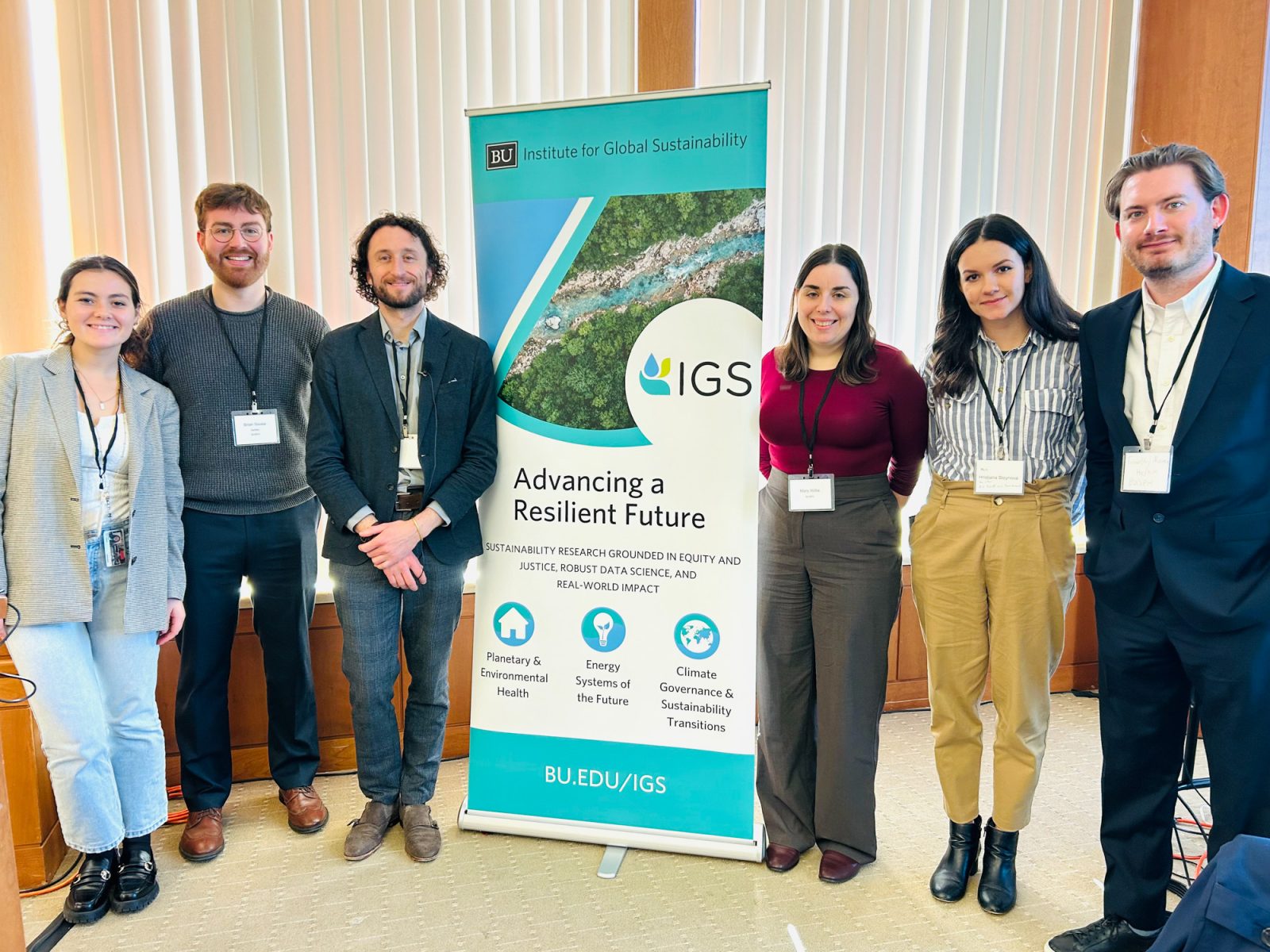There are two sides to every coin — and to ensure a truly just transition to clean energy, Boston University health researchers are using data to support equitable climate policy.
BU’s Institute for Global Sustainability helped host the first annual three-day CAFÉ Climate & Health Conference on Monday. The virtual conference was part of a three-year $6.7 million grant funded by the National Institutes of Health for a climate-health research initiative led by the BU School of Public Health and the Harvard T.H. Chan School of Public Health.

The conference featured keynote speakers including Vanessa Kerry, director-general special envoy for climate change and health at the World Health Organization, and María Belén Power, undersecretary of environmental justice and equity for the Executive Office of Energy and Environmental Affairs in Massachusetts.
Among the esteemed speakers were BU IGS faculty Jonathan Buonocore and Mary Willis, who are spearheading a project that aims to understand how energy infrastructure impacts specific communities by creating a database using data from the federal government.
“There’s an inequity there related to climate change,” said Buonocore, assistant professor of environmental health at SPH. “Especially in the climate world, the discussions of the health impacts of the energy infrastructure gets a little bit sidelined.”
To bring health to the forefront of the climate conversation, the researchers are creating a database that will have the data to back up policy and regulations on energy infrastructure for specific communities, he said.
The database project, which is seed-funded through IGS’ Sustainability Research Grant, began a year ago. A “rapidly growing raft of literature” revealed the health detriments hydraulic fracking causes to communities, Buonocore said — but there’s still a gap in research about how certain infrastructure, like pipelines, impact health.
“We really set out on this project to lay the groundwork so we could actually do these cumulative assessments of which energy sector piece is the most important one to regulate,” said Willis, an assistant professor of epidemiology at SPH.
Buonocore said they gathered data from about a dozen federal databases. Willis said the next step of the project will be split into three distinct parts: justice, intervention and policy and health.
Buonocore is leading an environmental justice analysis to discover the extent to which energy infrastructure impacts disadvantaged communities compared to advantaged communities. Lucy Hutyra, professor of earth & environment in the College of Arts and Sciences, is looking at the pros and cons of using solar panels in different communities, and Willis is running an analysis on how energy infrastructure impacts individual health.
“We’re trying to plan for what could happen down the line,” Kevin Lane, assistant professor of environmental health at SPH, who is not associated with the project, said. “Climate change has already impacted us today and … if we can communicate that and get that data into the hands of the urban planners, the decision makers, the policy, the communities that are being impacted disproportionately.”
And in order to ensure an equitable transition, it’s crucial to work with these communities so they can understand the risks and benefits, Rebecca Pearl-Martinez, executive director of IGS, said.
The research is rooted in so-called energy justice, which Willis said presents itself in two ways: “the distribution of who is being exposed to all these different pieces of the energy sector, and to what extent does everyone have equitable access to a reliable source of energy in their day-to-day lives?”
But researchers, policy makers and community members need to work together to make data more accessible, Natalia Escobar-Pemberthy, policy associate at IGS, said. But to bridge the gap between academia and the rest of the population, she said, there needs to be trust.
“There’s no data without communities’ stories,” she said.
And that is just what this data project aims to do — establish a holistic dataset that can be used to advocate for health protection policy, Willis said.
“Health is actually something that motivates people,” Pearl-Martinez said. “Having more information about the health impacts, would [motivate] people to support policies to address climate change.”
CORRECTION: The updated article reflects changes made for clarity.


























































































































